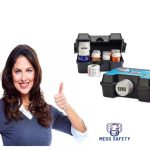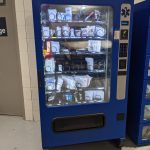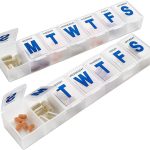Best Medication Lockers and Their Features

Medication lockers, also known as medication cabinets or drug lockers, are secure storage units designed to store and control access to medications. They are commonly used in healthcare facilities, such as hospitals, clinics, nursing homes, and pharmacies, to ensure the safe and proper management of medications.
The history of medication lockers is closely tied to the development of healthcare systems and the need for secure storage and controlled access to medications. While the concept of securing medications predates modern medication lockers, the evolution of these storage units has been influenced by advancements in technology, regulations, and patient safety concerns.
Early forms of medication storage can be traced back to the use of locked cabinets or chests to safeguard valuable drugs and supplies in pharmacies or hospitals. However, these early storage solutions were often rudimentary and lacked the sophisticated features found in modern medication lockers.
As healthcare systems advanced and medications became more diverse and potent, the need for more secure and controlled storage options became apparent. In the mid-20th century, the introduction of electronic locks and key card systems paved the way for the development of more advanced medication lockers. These systems offered improved security and allowed for better tracking and management of medication access.
In recent decades, the focus on patient safety and medication management has intensified, leading to stricter regulations and guidelines for healthcare facilities. The implementation of medication lockers has become an integral part of ensuring compliance with these regulations and reducing the risk of medication errors, theft, or misuse.
Advancements in technology have further enhanced medication lockers. Many modern lockers now feature sophisticated electronic keypads, biometric authentication systems, and integrated inventory management software. These features help healthcare professionals track medication usage, maintain accurate records, and efficiently restock supplies.
The development of medication lockers is ongoing as healthcare technology and regulations continue to shape their design and functionality. The primary goal remains the same: to provide secure and controlled storage solutions that promote patient safety, prevent medication errors, and ensure the proper management of medications in healthcare settings.
Features of a Good Medication Locker
A good medication locker should possess several important features to ensure the safe and secure storage of medications. Here are some key features to consider:
1. Secure Locking Mechanism: The locker should have a reliable locking mechanism, such as a combination lock or a digital keypad, to prevent unauthorized access and keep medications out of reach of children or individuals who should not have access to them.
2. Sturdy Construction: The locker should be made of durable materials like steel or heavy-duty plastic to provide physical protection for the medications inside. This helps prevent damage, tampering, or theft.
3. Sufficient Size and Storage Capacity: The locker should be spacious enough to hold various sizes of medication bottles, boxes, or packages. It should also have adjustable shelves or compartments to accommodate different types of medications and medical supplies.
4. Proper Ventilation: Medications may require certain environmental conditions to maintain their effectiveness. The locker should have ventilation or perforations to ensure proper air circulation and prevent the build-up of moisture or heat that could affect the stability of the medications.
5. Light-Blocking Design: Some medications are sensitive to light and may degrade if exposed to direct sunlight or strong artificial light. The locker should have a design that blocks light from entering, helping to preserve the integrity of light-sensitive medications.
6. Clear Labeling: It’s important to have clear labels on the locker, indicating that it contains medication and providing any necessary warnings or instructions. This helps prevent confusion and ensures that the locker is easily identifiable as a storage space for medications.
7. Portability and Mounting Options: Depending on your needs, you may prefer a medication locker that can be easily moved or one that can be securely mounted to a wall or inside a cabinet. Consider your specific requirements when selecting a locker.
8. Easy Accessibility: While security is paramount, it’s also important to have quick and convenient access to medications when needed. The locker should allow for easy retrieval of medications without compromising its safety features.
9. Optional Alarm System: Some advanced medication lockers offer additional security features like built-in alarms or tamper sensors. These features can alert you if there is any unauthorized access or tampering with the locker.
10. Compliance with Regulations: Ensure that the medication locker meets any applicable regulations or standards set by healthcare authorities or regulatory bodies. This is particularly important if you are using the locker in a healthcare facility or other regulated environments.
Best Medications Locker Brands On The Market
There are several reputable brands that offer medication lockers with a focus on security, functionality, and quality. Here are some of the top medication locker brands available on the market:
1. Omnimed: Omnimed is known for manufacturing a wide range of medical storage solutions, including medication lockers. They offer durable and secure lockers with various locking options and configurations to suit different needs.
2. Harloff: Harloff is a well-established brand in the healthcare industry and specializes in medical storage solutions. They offer medication lockers with advanced security features, sturdy construction, and customizable storage options.
3. MedixSafe: MedixSafe is a leading provider of electronic access-controlled medication lockers. Their lockers feature advanced biometric or electronic keypad access systems, audit trail capabilities, and tamper-evident designs for enhanced security.
4. Metro: Metro offers a comprehensive range of storage and organization solutions for healthcare facilities, including medication lockers. Their lockers are designed for secure storage, efficient organization, and easy accessibility.
5. Capsa Healthcare: Capsa Healthcare focuses on providing innovative medication management solutions for healthcare facilities. They offer medication lockers with secure locking mechanisms, integrated technology for inventory management, and customizable configurations.
6. Armstrong Medical: Armstrong Medical manufactures a variety of medical equipment and storage solutions, including medication lockers. They provide lockers with robust construction, tamper-proof features, and options for customization.
7. Stanley Vidmar: Stanley Vidmar specializes in storage and organization solutions for various industries, including healthcare. They offer medication lockers that prioritize security, durability, and efficient storage space utilization.
When choosing a medication locker, consider your specific requirements, such as the size of the locker, the level of security needed, and any specific features that align with your needs. Additionally, it’s always a good idea to read customer reviews, compare features and prices, and remember to consult with healthcare professionals or pharmacists for specific guidance on medication storage and safety practices.





